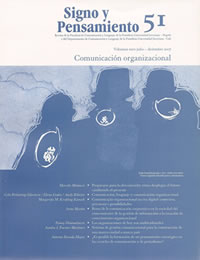Abstract
Effective communication is one of the biggest challenges for companies and organizations today at both national and international (global) levels. The purpose of this article is to show the results of a study carried out by an international group of researchers who were interested in characterizing and comparing communicative behaviour of Finnish and Mexican employees when interacting with their bosses. The article includes the following: first, a brief theoretical framework; second, the methodology used; third, the results of the comparative statistical analysis between Finnish and Mexican employees; fourth, general conclusions and their cultural explanation; and fifth, theoretical and practical implications of the study concerning the communicative competences required for effective communication between employees and their bosses in both national and international (global) organizations.This journal is registered under a Creative Commons Attribution 4.0 International Public License. Thus, this work may be reproduced, distributed, and publicly shared in digital format, as long as the names of the authors and Pontificia Universidad Javeriana are acknowledged. Others are allowed to quote, adapt, transform, auto-archive, republish, and create based on this material, for any purpose (even commercial ones), provided the authorship is duly acknowledged, a link to the original work is provided, and it is specified if changes have been made. Pontificia Universidad Javeriana does not hold the rights of published works and the authors are solely responsible for the contents of their works; they keep the moral, intellectual, privacy, and publicity rights.
Approving the intervention of the work (review, copy-editing, translation, layout) and the following outreach, are granted through an use license and not through an assignment of rights. This means the journal and Pontificia Universidad Javeriana cannot be held responsible for any ethical malpractice by the authors. As a consequence of the protection granted by the use license, the journal is not required to publish recantations or modify information already published, unless the errata stems from the editorial management process. Publishing contents in this journal does not generate royalties for contributors.


